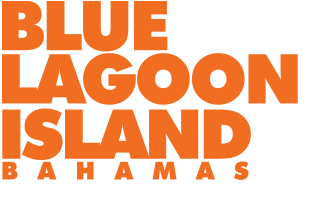Blue Lagoon Island
Sustainability Policy
Summary of Policy
The Blue Lagoon Island Sustainability policy (the policy) is to control resource consumption and improve the company’s relationship with our natural environment while maintaining our position as a leader in the tourism sector. We aim to reduce or eliminate negative social, cultural, economic and environmental impacts from the company’s activities. The policy will allow us to:
- Avoid unnecessary expenditure
- Help in protecting the environment
- Improve cost effectiveness, productivity, and working conditions
- Reduce our dependence on external fuel sources
- Reduce food waste
- Protect water resources
- Improve employee health and well-being
- Support and promote Bahamian culture
Long-term Objectives
Blue Lagoon Island’s long term objectives are to:
- Reduce energy and fuel consumption, by using ambient and renewable energy sources in combination with site appropriate architecture and employee training in sustainability
- Buy fuels and electricity at the most economic cost
- Use fuels and electricity as efficiently as possible
- Reduce the amount of emissions caused by our required consumption
- Improve employee health and wellness and reduce absenteeism, conduct infractions, and improve job satisfaction.
- Reduce the amount of food waste generated in our restaurants and food service areas
- Reduce the overall use of water in our daily activities throughout the property.
Immediate Objectives
Blue Lagoon Island’s immediate objectives are to:
- Gain more control over our energy related expenditure by monitoring those expenditures and aggressively pursuing renewable energy sources, taking advantage of government and industry initiatives and partnerships, and implementing resource conservation measures where fiscally and logistically feasible.
- All new facilities and projects will be developed and constructed using energy efficient technologies and conservation strategies.
Tasks
The following tasks and short term projects are required to achieve the immediate and long term goals.
- Fact finding:
- Determine the data available regarding expenditure, consumption and disposal of resources
- Establish appropriate mechanisms for collecting, compiling and storing that data.
- Determine organizational responsibility for various resources at various stages:
- Cost assessment/comparison
- Purchase/ hiring
- Storage (until or between use)
- Use or consumption
- Maintenance and monitoring
- End of life assessment
- Disposal/ removal/ repurpose
- Discussion and communication:
- Discuss the importance of sustainability with employees and management within the company
- Share the importance of sustainability with our local and regional partners
- Meet with local and regional partners regarding national or regional sustainability and how their businesses affect ours
- Training and education:
- Regularly train and educate employees at multiple levels within the company to be sustainability leaders within the company and broader community.
- Reward employees that show exemplary dedication to sustainability and support the company sustainability policy.
- Provide incentives for innovation in sustainable activities and for employees to engage in further training or education related to sustainability.


